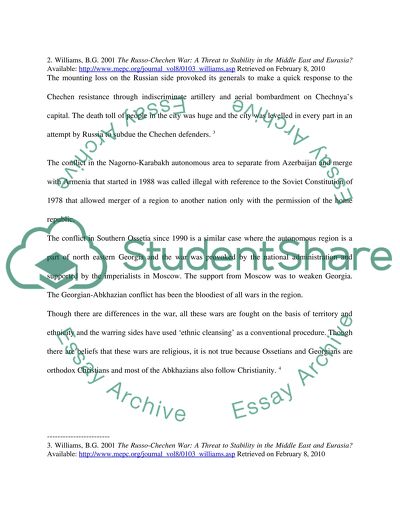Cite this document
(“Compare and contrast Russo-Chechen wars to Nagorno-Karabakh conflict Essay”, n.d.)
Retrieved from https://studentshare.org/miscellaneous/1562504-compare-and-contrast-russo-chechen-wars-to-nagorno-karabakh-conflict-discuss-with-special-reference-to-theories-of-conflict
Retrieved from https://studentshare.org/miscellaneous/1562504-compare-and-contrast-russo-chechen-wars-to-nagorno-karabakh-conflict-discuss-with-special-reference-to-theories-of-conflict
(Compare and Contrast Russo-Chechen Wars to Nagorno-Karabakh Conflict Essay)
https://studentshare.org/miscellaneous/1562504-compare-and-contrast-russo-chechen-wars-to-nagorno-karabakh-conflict-discuss-with-special-reference-to-theories-of-conflict.
https://studentshare.org/miscellaneous/1562504-compare-and-contrast-russo-chechen-wars-to-nagorno-karabakh-conflict-discuss-with-special-reference-to-theories-of-conflict.
“Compare and Contrast Russo-Chechen Wars to Nagorno-Karabakh Conflict Essay”, n.d. https://studentshare.org/miscellaneous/1562504-compare-and-contrast-russo-chechen-wars-to-nagorno-karabakh-conflict-discuss-with-special-reference-to-theories-of-conflict.


